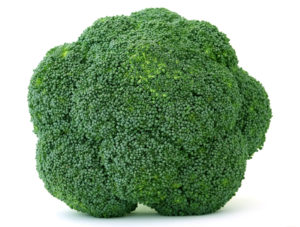
One of the more common B vitamins that many people have heard about before is vitamin B9, also referred to as Folic acid or Folate.
As more and more people start to become more aware of their overall nutritional status and are making effort to not only look at the macronutrients that they’re taking in including proteins, carbs, and fats, they’re starting to look at their diet from a micronutrient level as well.
This means assessing their usual intake of all the different vitamins and minerals that keep you functioning at your best.
Vitamin B9 is one of those vitamins that you must make sure is not overlooked so let’s take some time right now to go over all the important things that you should note.
A List of Vitamin B9 Food Sources

The top food sources of vitamin B9 that you should be eating daily include:
- Avocado
- Asparagus
- Beans
- Beets
- Broccoli
- Cabbage
- Citrus fruits
- Dark green leafy vegetables
- Fish
- Eggs
- Lima beans
- Liver
- Milk
- Mung beans
- Mustard greens
- Orange juice
- Organ meats
- Salmon
- Spinach
- Soybeans
- Turnips
- White beans
- Whole grains
Note: Most folic acid can be destroyed by cooking, but enough will remain to make the above foods contain acceptable levels of folic acid.
How to Consume More Vitamin B9 (Folic Acid)

To help get more vitamin B9 into your day, start replacing some of your typical meat meals with bean based meals and make sure to start incorporating spinach into your salads more often.
Both of these changes will also help to increase other important nutrients in your diet such as fiber and iron, so will be a welcomed change to help improve your overall nutritional profile and make sure you have strong energy levels each day.
What Role Does Vitamin B9 (Folic Acid) Perform Inside The Human Body?
One of the most important roles that vitamin B9 is going to play in the body is its role in DNA synthesis. Your DNA is like the blueprint of growth, guiding the body to make all the various cells that you’re made up of.
In addition to this, vitamin B9 will play a very key role in red blood cell growth especially, which is the cell in the body that will transport oxygen to all the working muscles and tissues, essentially sustaining life.
Those who are not producing enough red blood cells are going to experience high levels of fatigue, especially during exercise and could eventually end up suffering from anemia.
Vitamin B9 will be involved in cell division and replication, which helps ensure proper growth is carried out as you go about your life.
The next role that this water soluble vitamin will have is with protein metabolism, where it’s involved in breaking down protein that’s consumed and using the amino acids to formulate new body tissues.
In addition to protein metabolism, it’s also going to help enhance mental and emotional health, so is often used as a natural method to help treat depression or manage anxiety disorders.
Finally, folic acid or vitamin B9 will be important for a healthy nervous system, so without enough of it in the body, severe problems can start taking place. This nutrient is especially important for pregnant women to be consuming in higher amounts due to the large role it has in growth and development of all the cells and the nervous system of the growing fetus.
Parts of the Body Affected By Vitamin B9
- Blood cells
- Central nervous system
- Endocrine system
- Digestive tract
- Connective tissue
The Health Benefits of Folic Acid

Adding vitamin B9 to your daily diet is going to help ensure that your energy levels stay on high at all times as it does make sure that red blood cell production is being carried out as it should.
Folic acid will also be helpful for reducing the rate of spina bifida as well as congenial nervous disorders, which is yet another reason why pregnant women must be especially careful about meeting their daily requirements.
Getting enough folic acid in your diet on a daily basis one of the most important things that you can do to help lower the levels of homocysteine in the body, which will then help to prevent heart disease, heart attack, as well as stroke, so for this reason, this nutrient is very beneficial at keeping your heart health intact.
It’s been noted that those who are currently being treated for depression often have lower folate levels in their body than normal, so adding this supplement or eating more folate rich foods is one of the natural ways to help reduce the effects of depression and offer natural treatment methods.
Finally, it’s also beneficial for those who are suffering from psoriasis as it may help to treat this condition.
Vitamin B9 (Folic Acid) Recommended Daily Amount
The recommended daily intake that’s been established for vitamin B9:
- 0-6 months: 65 mcg
- 7-12 months: 80 mcg
- 1-3 years: 150 mcg
- 4-8 years: 200 mcg
- 9-13 years: 300 mcg
- 14-18 years (males): 400 mcg
- 14-18 years (females): 400 mcg
- 19 years and older (males): 400 mcg
- 19 years and older (females): 400 mcg
- Pregnant females: 600 mcg
- Breastfeeding females: 500 mcg
Adults who are suffering from heart disease will often be advised to increase their dosage of vitamin B9, but be warned that this should only be done when recommended by a professional.
Vitamin B9 (Folic Acid) Deficiency Symptoms
If you aren’t taking in enough folic acid or vitamin B9 with your daily diet or through supplementation, some of the deficiency symptoms that you may experience are:
- High levels of fatigue
- Large amounts of acne
- Sore tongue
- Cracking at the corners of your mouth
If you let the deficiency go on long enough, you’re likely to develop anemia as mentioned above and may also start to notice signs of osteoporosis taking place as well.
Deficiency can also increase your risk for the development of cancer of the bowel and cervix, so that’s another very important reason to make sure that you’re taking in enough of this daily.
So there you have all the important things to note about folic acid or vitamin B9. For anyone looking to maximize their health and especially those who are pregnant or who are thinking of trying to become pregnant, this is one nutrient that you definitely cannot afford to miss out on.
Vitamin B12 – Cobalamin Foods, Benefits and Deficiency Symptoms




The highest concentration of b9 is found in foods such as wheat bran, liver and nuts. These foods contain the highest amounts.